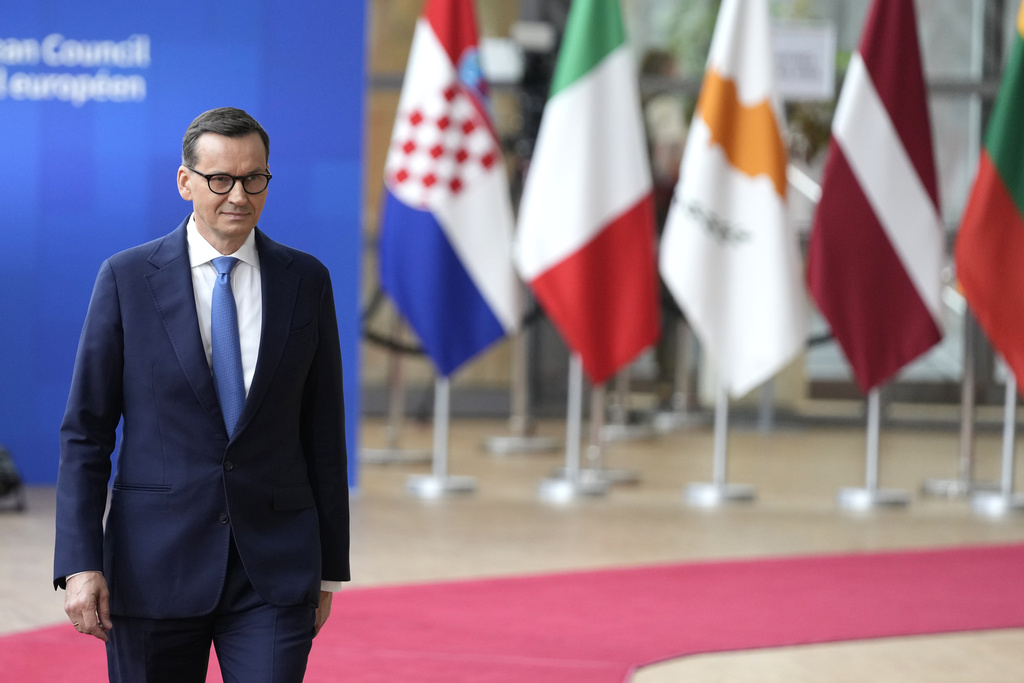Polish Prime Minister Mateusz Morawiecki unveiled the government’s plan to combine parliamentary elections with a referendum on immigration. According to Morawiecki, the decision aims to reduce costs that would have arisen had the elections and referendums held on separate days.
He said that the referendum ballot would probably contain only one question on illegal immigration to Poland. “While there is a preliminary decision, it is subject to potential additional questions. However, our current intention is to keep it as simple as possible,” said Morawiecki at a press conference.
“Illegal immigration is a major problem that Western Europe is currently facing,” he added. As he explained, the decision to merge both events, the parliamentary elections and the referendum, was driven by the desire to reduce costs.
Simultaneously, members of the Law and Justice (PiS) party submitted a draft bill to the Polish parliament, the Sejm, proposing an amendment to the Act on Nationwide Referendum. This amendment would enable referendums to be held on the same day as parliamentary, presidential, or European Parliament elections, removing formal barriers and unifying voting hours.
In mid-June, PiS leader Jarosław Kaczyński announced the idea of the referendum on the EU mechanism for relocating migrants, emphasizing the need for popular consent.
“The Polish nation will not agree to it; a referendum is necessary, and we will organize it,” he declared.
Morawiecki stated on several occasions that Poland would reject the proposed migration policy put forward by Brussels. He vowed that as long as PiS remained in power, Poland would not permit illegal migrants to enter without the country’s will, consent, or knowledge.
Morawiecki further criticized Brussels for applying double standards. He highlighted Poland’s inadequate compensation provided by the EU for solidarity with Ukrainian refugees.
“For our assistance, the EU pays next to nothing, around €50 to €60, while demanding over €20,000 for each rejected migrant,” he added.
The topic of refugee relocation has resurfaced in the European Union, which sparked huge controversies a few years ago. At the end of May this year, EU Commissioner for Home Affairs Ylva Johansson presented a proposal regarding the mandatory relocation of migrants to ambassadors of member states.
The mechanism provides for the relocation of up to 120,000 people per year or an equivalent of €22,000 per migrant in cases where a country does not agree to it. According to the Polish government’s assessment, the proposed solution effectively penalizes countries that do not want to accept migrants.
Last Friday, Poland and Hungary refused to sign up to conclusions of a European Union summit over two paragraphs on migration.





